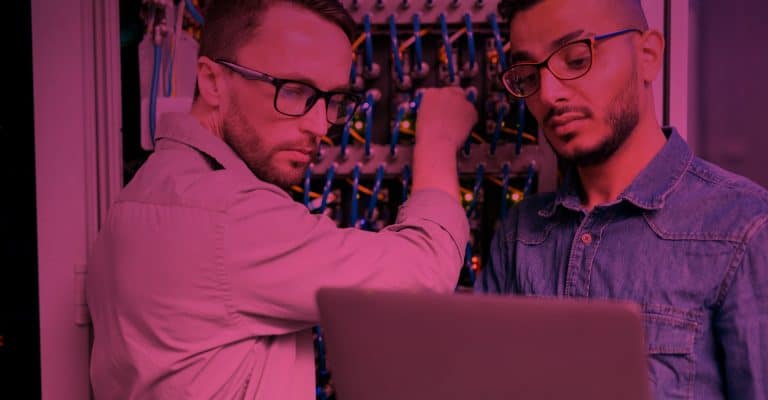AI for Nonlinear Control: A Revolutionary Approach
December 25, 2024 2024-12-20 11:45
AI for Nonlinear Control: A Revolutionary Approach
Artificial Intelligence (AI) is transforming the way we design and implement control systems, particularly in the realm of nonlinear control. Nonlinear systems, which are characterized by their complexity and unpredictable behavior, are prevalent in various fields, including robotics, aerospace, energy, and industrial automation. Traditional methods for controlling these systems often struggle with limitations in precision, adaptability, and efficiency. However, AI offers a revolutionary approach to overcoming these challenges, enabling more robust, efficient, and adaptive control solutions.
What Are Nonlinear Systems?
Nonlinear systems are those where the relationship between inputs and outputs is not proportional, making them difficult to model and predict. They require sophisticated techniques to achieve desired behaviors, especially in dynamic environments.
- Key characteristics of nonlinear systems:
- Complex, unpredictable behavior.
- Non-proportional input-output relationships.
- Sensitivity to initial conditions and external disturbances.
- Examples of nonlinear systems:
- Robotic arms navigating variable environments.
- Flight control systems dealing with dynamic airflows.
- Renewable energy systems under fluctuating conditions.
Advantages of AI in Nonlinear Control
AI-driven nonlinear control leverages machine learning, neural networks, and optimization techniques to model, predict, and control complex systems.
- Enhanced adaptability: AI systems can adjust to changing conditions in real-time.
- Improved precision: AI algorithms analyze data patterns and optimize control strategies.
- Reduced computational requirements: AI can streamline problem-solving by learning from data.
AI Techniques in Nonlinear Control
Machine Learning
Machine learning algorithms analyze and predict system behaviors using data, providing valuable insights for control strategies.
- Supervised learning: Trains models using labeled datasets to predict system responses.
- Reinforcement learning: Allows systems to learn optimal strategies through trial and error, making it ideal for dynamic environments.
Neural Networks
Neural networks approximate complex functions, making them well-suited for nonlinear systems.
- Controller roles: Neural networks can approximate desired control laws.
- Observer roles: They estimate system states from limited or noisy data.
- Generalization capabilities: Neural networks can learn and adapt to unseen scenarios.
Optimization Techniques
Optimization methods refine control parameters and solve complex problems in nonlinear systems.
- Genetic algorithms: Mimic natural selection to find optimal solutions.
- Particle swarm optimization: Uses swarms of potential solutions to converge on the best outcome.
- Gradient-based optimization: Fine-tunes parameters for improved control performance.
Industry Applications of AI in Nonlinear Control
Robotics
AI enhances precision, adaptability, and efficiency in robotic systems.
- Motion planning: AI enables robots to navigate complex and dynamic environments.
- Task automation: Robots learn to perform intricate tasks with minimal human intervention.
Aerospace
AI improves flight control systems, enhancing safety and performance.
- Dynamic flight stability: AI algorithms optimize real-time flight adjustments.
- Navigation in uncertain conditions: AI improves performance under variable atmospheric conditions.
Renewable Energy
AI-driven control optimizes the performance of renewable energy systems.
- Wind turbines: AI adjusts turbine settings to maximize efficiency under changing wind conditions.
- Solar panels: AI monitors and adjusts systems to optimize energy capture based on sunlight patterns.
Challenges in AI-Driven Nonlinear Control
While AI offers transformative potential, it comes with challenges.
- Data requirements: Large datasets are needed to train AI models effectively.
- Interpretability: Complex AI models can be difficult to understand and validate.
- Computational demands: Real-time applications require advanced hardware and efficient algorithms.
Strategies to Address Challenges
Researchers and developers are adopting hybrid approaches to overcome limitations.
- Hybrid control strategies: Combine AI with traditional methods for enhanced reliability.
- Data augmentation: Use simulated data to supplement real-world datasets.
- Edge computing: Leverage local computational power to enable real-time AI applications.
Future Trends in AI for Nonlinear Control
AI’s role in nonlinear control is evolving rapidly, with advancements in machine learning and computational capabilities driving innovation.
- Deep reinforcement learning: Improves multi-agent system control and coordination.
- Transfer learning: Adapts pre-trained models to new scenarios, reducing training time.
- Integration with edge computing: Enables real-time applications for resource-constrained environments.
Key Takeaways
- AI enables superior performance in handling nonlinear systems by adapting to dynamic conditions and optimizing control strategies.
- Machine learning, neural networks, and optimization techniques are core components of AI-driven nonlinear control.
- Industries like robotics, aerospace, and renewable energy benefit significantly from AI’s ability to improve precision and efficiency.
- Challenges in data requirements and computational demands are being addressed through hybrid approaches and technological advancements.
Conclusion
AI is revolutionizing nonlinear control systems, offering unprecedented opportunities to enhance efficiency, resilience, and performance. By leveraging machine learning, neural networks, and optimization techniques, AI is addressing challenges that traditional control methods cannot solve. As industries continue to adopt AI-driven solutions, the future of nonlinear control looks increasingly promising.
To learn more about this revolutionary approach, watch this informative video: https://youtu.be/ykLu9jO0eKg
Related Posts
AI for Nonlinear Control: A Revolutionary Approach
December 25, 2024 2024-12-20 11:45Popular Tags





























